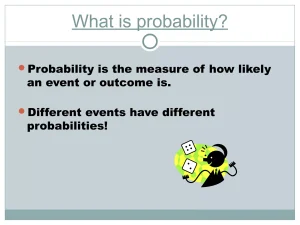
Let’s be honest. The image most people have of a card counter is a math genius, a human calculator effortlessly tracking every card. But here’s the real deal: the math is the easy part. Seriously. The true challenge—the real battleground—is entirely in the mind.
Card counting is less about complex equations and more about intense psychological discipline. It’s a marathon of mental endurance, emotional control, and situational awareness. Anyone can learn a counting system. Staying undetected, managing a bankroll, and keeping your cool when the deck is hot? That’s where the psychology comes in.
It’s Not Rain Man: Demystifying the Mental Load
First, let’s clear something up. You don’t need a photographic memory. Card counting is about keeping a running count. You assign a value to groups of cards (+1, -1, 0) and simply add or subtract as they’re dealt. It’s like keeping a mental tally. The real mental load isn’t the arithmetic; it’s doing it while maintaining a casual conversation, with music blaring, cocktail waitresses asking for your order, and the dealer chatting you up.
Your brain is performing a delicate balancing act. One part is the cold, logical calculator. The other is the actor, the “character” you’re playing at the table—the bored tourist, the excited novice, the cautious grinder. Juggling these two mindsets, often for hours at a time, is phenomenally draining. It’s like patting your head and rubbing your stomach while someone is trying to distract you with questions about quantum physics.
The Casino’s Greatest Weapon: Your Own Psychology
Casinos are expertly designed psychological playgrounds. They know human weaknesses inside and out, and they use them against every player, especially counters.
Fatigue and Decision Drain
There are no clocks. The air is recycled. Free drinks flow. This isn’t just for hospitality; it’s a strategy. Fatigue leads to poor decisions. For a card counter, a single mental slip can reset your count to zero, nullifying an hour of perfect play. The constant, low-grade exhaustion makes maintaining focus a Herculean task.
The Emotional Rollercoaster
Blackjack is a game of wild variance. You can play perfectly and lose ten hands in a row. This is where emotional control is everything. The “gambler’s fallacy”—the belief that a win is “due” after a loss—can destroy a card counter’s strategy. You might be tempted to deviate from your bet spread because you’re frustrated or, just as dangerously, overconfident.
Fear and greed are your worst enemies. Fear might cause you to under-bet a positive count. Greed might make you over-bet or play too long at a hot table, increasing your risk of detection. Separating emotion from logic is the ultimate skill.
Mental Fortitude: The Counter’s Toolkit
So how do successful counters combat this? They develop a robust mental toolkit.
1. The Art of Acting (Cover)
This is performance art. Pit bosses and surveillance are trained to spot the tell-tale signs of a counter: minimal conversation, intense focus on the cards, and—the biggest giveaway—betting correlation with the count. To blend in, you must act.
Chat with the dealer. Make a stupid play occasionally—like hitting a 15 against a 6—just to look like a “gambler.” Vary your bet sizes slightly even during neutral counts. Your goal is to appear like a lucky recreational player, not a calculated profit machine. It feels unnatural because it is. You’re essentially hiding in plain sight.
2. Unshakable Bankroll Discipline
This is pure psychology. You must have a predetermined plan for how much you’re willing to risk (your bankroll) and how much you’ll bet at each true count. And you must stick to it, no matter what. Seeing your stack dwindle during a negative swing tests your resolve. The psychological urge to “win it back” is immense. The pros know that variance evens out, but only if you don’t panic and blow your entire stake on a hunch.
3. Mindfulness and Focus
Many successful counters use techniques borrowed from athletes and meditators. Deep breathing exercises between shoes to reset focus. A pre-session ritual to get into the zone. The ability to acknowledge a distraction—a loud player, a mistake—and then let it go without it breaking your concentration. This mindful approach prevents “tilt,” that state of frustrated, emotional play that sinks so many.
Beyond Counting: Broader Mental Strategies
Even for players who don’t count, these psychological principles can dramatically improve your game and enjoyment.
Know When to Walk Away: Set win and loss limits before you sit down. If you double your money, cash out. If you lose your pre-set amount, be done. This protects you from yourself.
Play Your Game, Not Theirs: Don’t get swayed by the table “expert” criticizing your play. You know basic strategy. Stick to it. The math is on your side, not the opinion of the drunk guy to your left.
It’s Entertainment, Not Employment: For most, blackjack is a fun night out. Budget for it like you would for concert tickets. The moment you start chasing losses or thinking you can “beat the house,” you’ve lost the psychological battle before you’ve even placed a bet.
The Final Card
At its core, the psychology of blackjack is a fascinating study in human behavior under pressure. It reveals how we handle risk, manage emotion, and perform under scrutiny. Card counting is just the most extreme example.
The real victory isn’t just in beating the game, but in mastering yourself—the discipline to follow the plan, the courage to bet big when the odds are right, and the wisdom to walk away with a smile, win or lose. That’s a strategy that pays off far beyond the felt.







